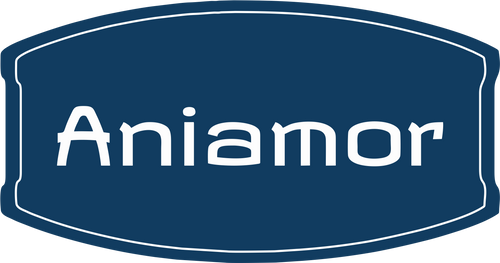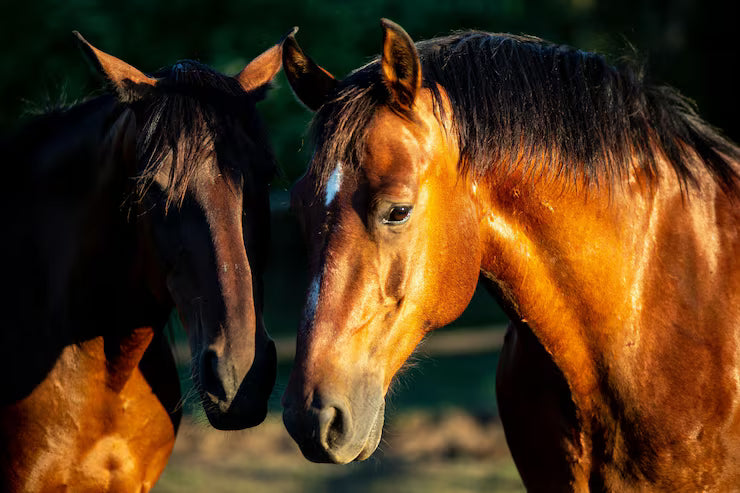A Guide to Equine Nutrition for Your Horse’s Health
Proper equine nutrition is the cornerstone of your horse’s overall health, performance, and longevity. Whether your horse is a performance athlete, working horse, or a beloved companion, the right nutrition for horses ensures they stay energetic, strong, and disease-free. This guide breaks down the essentials of equine feed, supplements, and balanced diets to help you make informed choices for your horse’s wellbeing.
Why Equine Nutrition Matters?
Horses are natural grazers with unique digestive systems designed for small, frequent meals. A poor diet can lead to common health issues such as colic, ulcers, laminitis, and reduced performance.
- Supports immune health
- Improves digestion
- Enhances coat shine and hoof strength
- Boosts stamina and recovery
Core Components of a Horse’s Diet
a) Forage (Hay & Pasture)
- The foundation of equine diets (should make up 60–70% of intake).
- Provides essential fiber for healthy digestion.
- High-quality pasture or hay helps prevent digestive issues.
b) Concentrates (Grains & Pellets)
- Provides additional energy for working or performance horses.
- Should be balanced with forage to avoid obesity or digestive problems.
c) Fresh Water
- Horses need 25–55 liters daily.
- Always provide clean, fresh water to support digestion and hydration.
d) Vitamins & Minerals
- Vital for bone strength, muscle function, and immunity.
- Often supplemented through fortified feeds or targeted equine supplements.
Understanding Equine Feed
Not all feeds are created equal. Choose equine feed based on your horse’s age, activity level, and health status:
- Senior feeds for older horses with chewing or absorption issues.
- Performance feeds high in energy and protein.
- Low-starch feeds for horses prone to metabolic issues.
The Role of Equine Supplements
Even with a balanced diet, horses may need additional support. Equine supplements can target specific needs such as:
- Equine joint health supplements – for mobility and flexibility.
- Digestive health – probiotics and prebiotics for gut balance.
- Equine Calming supplements – for reduced stress and anxiety
- Hoof and coat health – biotin, omega-3s, and amino acids.
- Electrolytes – to replenish salts lost during sweating.
Tips for Feeding Your Horse
- Feed little and often to mimic natural grazing.
- Maintain a consistent feeding schedule.
- Avoid sudden changes in feed – transition slowly over 7–10 days.
- Monitor body condition regularly.
- Consult a vet or equine nutritionist for personalized diet plans.
Conclusion
Equine nutrition isn’t just about feeding your horse—it’s about fueling their health, energy, and longevity. From the right balance of forage and concentrates to carefully chosen equine supplements, every choice impacts your horse’s wellbeing.
At Aniamor, you’ll find premium-quality supplements designed to support joint health, digestion, and overall vitality in horses. Explore the full Aniamor Equine Supplement Collection to give your horse the care it truly deserves.
FAQs
Q1. What is the most important part of a horse’s diet?
Forage (hay and pasture) is the most important, making up 60–70% of the horse’s diet to maintain healthy digestion.
Q2. How do I know if my horse needs supplements?
If your horse shows signs of joint stiffness, poor coat condition, weak hooves, or digestive upset, equine supplements may help. Always consult a vet.
Q3. Can horses eat too much grain?
Yes, overfeeding grain can lead to colic, laminitis, and obesity. Grains should always be balanced with adequate forage.
Q4. What vitamins do horses need most?
Horses require vitamins A, D, E, and B-complex, along with minerals like calcium, phosphorus, and magnesium.
Q5. How many times should I feed my horse a day?
Horses should be fed small meals multiple times a day to mimic natural grazing and prevent digestive issues.

